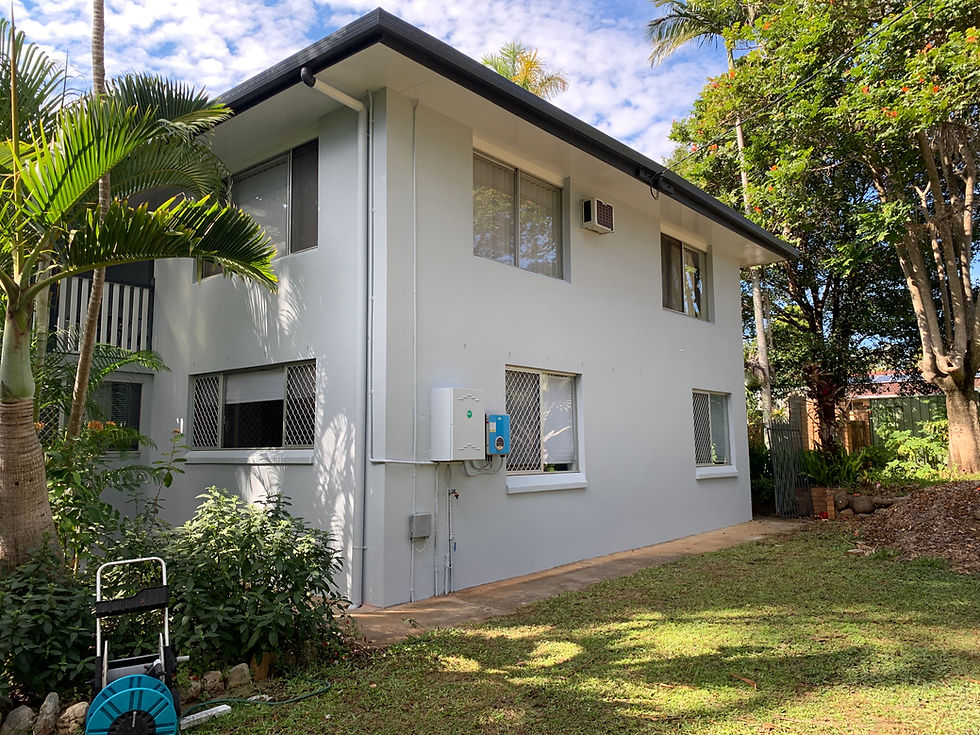Essential Guide to Cement Rendering in Brisbane, Gold coast & Sunshine coast: Understanding Costs and Processes
- Admin
- Nov 18, 2025
- 3 min read
Cement rendering has become a popular choice for homeowners, builders, and developers in Brisbane and surrounding areas like the Gold Coast and Sunshine Coast. It offers a durable, attractive finish that can transform the look of any property. If you are considering cement rendering for your next project, understanding the costs involved and the process that can help you make an informed decision. This guide breaks down everything you need to know about cement rendering, from pricing factors to what to expect during installation.

What Is Cement Rendering?
Cement rendering is the process of applying a mixture of sand, cement, and water to exterior or interior walls. This creates a smooth or textured surface that protects the underlying structure and enhances the building’s appearance. Cement render adds a layer of protection against weather, moisture, and cracks.
Many Brisbane homes use cement render because it suits the local climate and architectural styles. It also allows for various finishes, including smooth, textured, or patterned, giving homeowners flexibility in design.
Factors Affecting Cement Render Costs in Brisbane, Gold coast & Sunshine coast
When budgeting for cement render, several factors influence the overall cost:
Surface Area
The larger the wall area, the higher the cost. Most contractors charge per square meter.
Condition of Existing Walls
Walls that require repairs, cleaning, or preparation will increase labour and material costs.
Type of Finish
Smooth finishes tend to be less expensive than textured or decorative finishes.
Labour Costs
Skilled labour rates vary across Brisbane, Gold Coast, and Sunshine Coast. Urban areas may have higher rates.
Step-by-Step Cement Rendering Process
Understanding the process helps set realistic expectations and ensures quality results.
1. Surface Preparation
The contractor inspects the walls for cracks, holes, or loose material. They clean the surface thoroughly and repair any damage. This step is crucial to ensure the render adheres properly.
2. Applying the Base Coat
A base coat of cement render is applied to the wall. This layer provides the foundation for the finish coat. It is usually rough to help the next layer stick.
3. Applying the Finish Coat
Once the base coat moderately dries, the finish coat is applied. This layer can be smooth or textured depending on the desired look.
4. Curing and Drying
The render needs time to cure and dry properly. This can take several days depending on weather conditions. Proper curing prevents cracks and ensures durability.
5. Optional acrylic paint or Membrane
Owners and painters will use an acrylic paint over render. JT Industries & Co recommend using a membrane coating for enhanced durability.

Benefits of Cement Rendering for Brisbane, Gold coast & Sunshine coast Homes
Weather Resistance
Cement render protects walls from rain, wind, and sun damage common in Brisbane’s, Gold coast & Sunshine coast climate.
Improved Appearance
It gives a clean, modern look that can increase property value.
Low Maintenance
Rendered walls require less upkeep than bare brick surfaces.
Versatility
Suitable for different building materials including brick, concrete, cladding and block walls.
Energy Efficiency
When combined with insulation, cement render can improve thermal performance.
Common Questions About Cement Render Brisbane
How Long Does Cement Rendering Last?
With proper installation and maintenance, cement render can last 15 to 20 years or more. Regular inspections and minor repairs extend its lifespan.
Can Cement Render Be Painted?
Yes, once fully cured, cement render can be painted with membrane to add colour or extra protection.
Is Cement Rendering Suitable for All Homes?
Most homes with brick, concrete, cladding or block walls can be rendered. However, older homes with unstable walls may need structural assessment before rendering.
How Long Does the Rendering Process Take?
For an average-sized home, the entire process usually takes 3 to 7 days.

Final Thoughts on Cement Rendering Costs and Process
Cement render offers a practical and stylish solution for protecting and enhancing your property. Understanding the costs and process helps you plan your project with confidence. Whether you live in Brisbane, Gold Coast, or Sunshine Coast, investing in quality materials and skilled labour will ensure your render lasts for years.
If you are ready to improve your home’s exterior, start by contacting JT Industries & Co. A well-executed cement rendering can boost your home’s curb appeal and durability, making it a smart choice for many homeowners and developers.




Comments